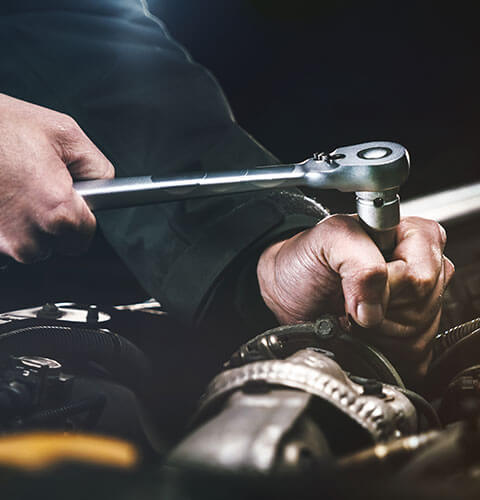What is the difference between a motor trader policy and other types of insurance?
There is sometimes confusion between what motor trade insurance and private motor insurance covers.
Do you need to work in the motor trade to have a motor trader insurance policy? What does it mean to work in the ‘motor trade’? Can you get a standard car insurance policy and buy and sell cars?
Here, we look at what a motor trade policy is and compare it to a standard private motor policy to highlight the similarities and point out the differences.
What is a motor trader policy?
In simple terms, a motor trader policy will provide the insurance cover you need to work in the motor trade.
It is designed only for that purpose – if you don’t work in the motor trade, then you don’t need a motor trader policy!
Motor trade professions include:
- Servicing and repairing vehicles
- Buying and selling vehicles
- Body shops and restoration
- Auto electricians
- Mobile mechanics
- MOT testing
- Accessory fitters
- Dealerships
- Breakdown and recovery
- Vehicle collection and delivery
- Valeters
…and lots more. Basically, anything that involves buying, selling, servicing or repairing vehicles means you’re working in the motor trade.
Why isn’t private motor insurance good enough to work in the motor trade?
Private motor insurance works differently to motor trade insurance.
With private motor insurance, you cover the vehicle you personally own or are the registered keeper for. With motor trade insurance, you can cover vehicles you have purchased to sell on to other people as well as vehicles that belong to customers – for example, if you are servicing or repairing them.
Some people mistakenly think their private motor policy allows them to drive any vehicle on a third-party only basis. In reality, this cover is limited – it is only really designed to be used in an emergency (e.g. if you have to borrow your spouse’s car because yours has broken down) and not for everyday driving.
Taking out business use on a private motor policy will only cover your own vehicle for this purpose, and there are restrictions on the type of business you conduct while driving your personal vehicle. It won’t cover you to buy and sell other vehicles.
Insurance designed for the motor trade
The most basic motor trader insurance, road risks insurance, is specially designed to allow you to drive your own vehicles and customer vehicles in connection with your business – something a private motor policy won’t do.
There are some similarities between private motor insurance and road risks insurance, including:
- Cover is available on a third party, third party fire and theft, or comprehensive basis
- There is a level of compulsory excess and voluntary excess that may be applied to the policy
- No claims bonus can be built up by remaining claim-free on your insurance
- Insurance is renewed annually, with repayment plans available
However, there are also some notable differences:
- Road risks insurance will allow you to drive any vehicle within the terms of your policy in connection with your business. Restrictions may apply to luxury cars or sports cars, for example, especially where younger or inexperienced drivers are concerned. A private motor policy only covers your own vehicle
- Comprehensive cover on a motor trade policy only covers the trade value of the vehicle, rather than its private sale value
- No claims bonus can be transferred from a private motor policy to a motor trader policy, but rarely can you transfer the no claims bonus from a motor trade policy back to a private car policy (though Bollington does have a policy that allows this for ex-motor traders – talk to us if these are your circumstances)
- On a road risks policy, you need to add or remove vehicles from the motor insurance database (MID) when you buy or sell them, whereas a private car policy will only allow you to change your own vehicle on cover (usually with admin fees for changing your policy, and limited changes each year).
What else can a motor trader policy cover me for?
It’s not just driving vehicles in the motor trade that you’ll need cover for. Consider additional cover if you have:
- Business premises, including lock-up garages.
- Vehicles stored on business premises. You’ll need stock of vehicles cover for these.
- Employers’ liability insurance is most often a legal requirement for businesses employing people in the motor trade.
- Dealings with members of the public. If there’s a chance of an accident leading to an injury claim from a member of the public, you’ll need public liability insurance to defend yourself and cover legal fees and damages awarded.
- Tools or equipment – either on-site or in transit. If you need specialist tools or equipment to do your job, you can’t afford to lose them, and they can be costly to replace.
- A vehicle transporter or recovery truck, which requires specialist recovery operator insurance.
- Money on business premises, if you take cash for jobs carried out.
Other covers to consider include:
- Sales or service indemnity. This protects you if you sell or service a vehicle in good faith and defective workmanship on the vehicle causes damages.
- Engineering inspection cover. If you have specialist equipment like lifting tables, ramps or paint spraying booths, then it needs to be legally inspected to ensure compliance with regulations.
There are lots more covers available depending on your needs. Give us a call to discuss what you do so we can tailor insurance for your business.
Get a quote for motor trader insurance
Speak to Bollington for some of the best motor trader policies in the business. With access to a range of insurers and competitive prices, you can trust us to search for a great value motor trader policy from our panel of insurers.
If you require road risks only insurance, call us on 01625 854458. If you require other insurances, speak to our traders combined team on 01625 854443. We’re ready and waiting to offer you advice and a quote.




